October 09, 2025
By Claire Biason,
Coalitions & Engagement Program Manager
Women leaders from seven Amazonian countries and Panama joined the IV Indigenous Women’s March of Brazil, consolidating learning as a collective process to strengthen territorial governance with a gender approach.
The IV Indigenous Women’s March of Brazil, held in Brasília last August, was not only a historic moment of mobilization — more than 5,000 women leaders were present — but also a key step in the collective construction of a Learning Journey focused on Indigenous Women and their Territorial Governance. Launched in 2024 by Indigenous organizations from the Amazon and Panama, with the support of the International Forum of Indigenous Women (FIMI), Tenure Facility (TF), and TINTA, this initiative seeks to strengthen territorial management with a gender lens through a process of dialogues, exchanges, and articulation.
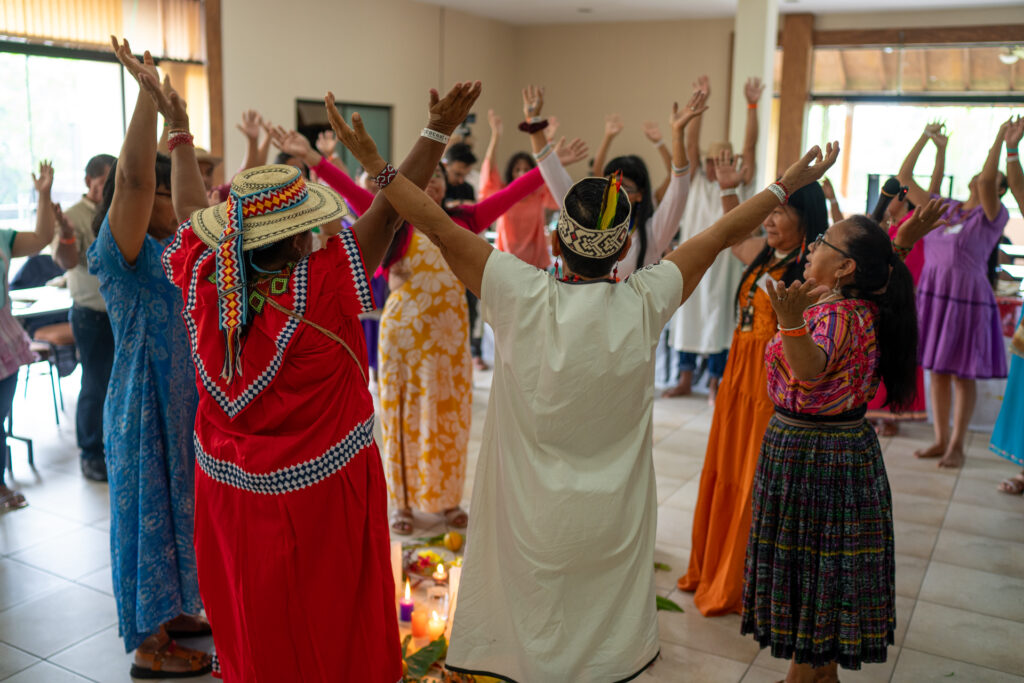
The first gathering of this Journey, in December 2024, was hosted by the National Confederation of Indigenous Women of Bolivia (CNAMIB). There, more than 50 Indigenous women from the region identified shared challenges and strategic priorities, such as influencing international spaces, addressing violence against women and girls in extractivist contexts, territorial resilience to climate change, and direct access to financing, among others.
On this path, participation in the IV Indigenous Women’s March was a new milestone. This edition was hosted by the National Articulation of Ancestral Warrior Indigenous Women (ANMIGA), the Coordinator of Indigenous Organizations of the Amazon Basin (COIAB), and the Union of Indigenous Women of the Amazon (UMIAB). Over five days, leaders from ten Indigenous organizations across seven countries in the Amazon basin and Panama formed a delegation as part of this Learning Journey, traveling to Brasília to meet with Indigenous women from all over Brazil and other countries worldwide under the motto “Our bodies are territory. We are the guardians of the planet for the healing of the Earth”.
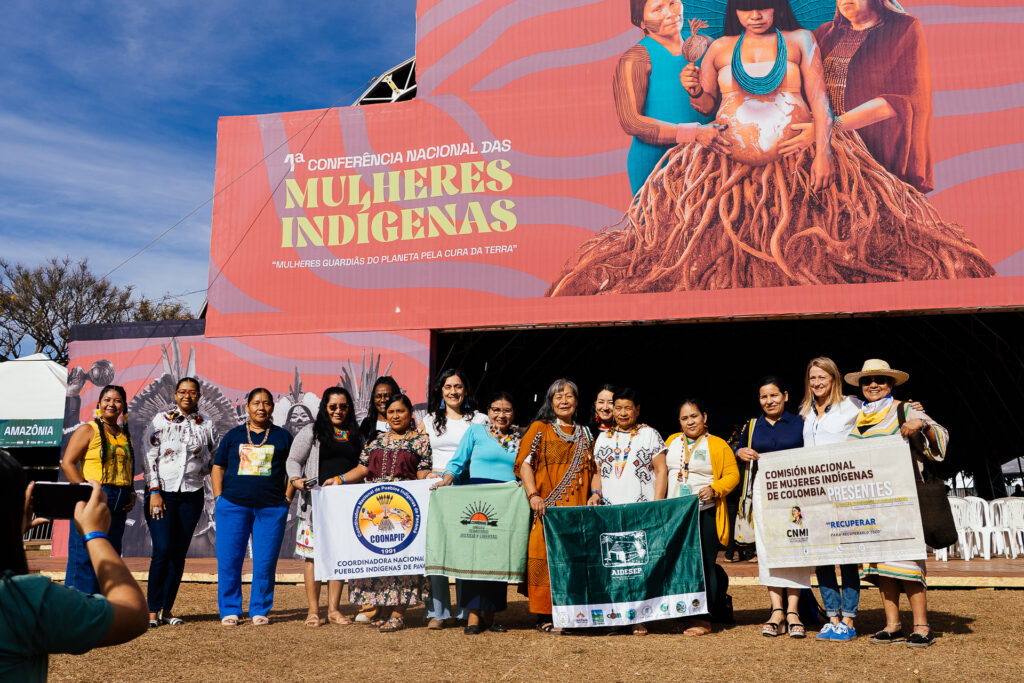
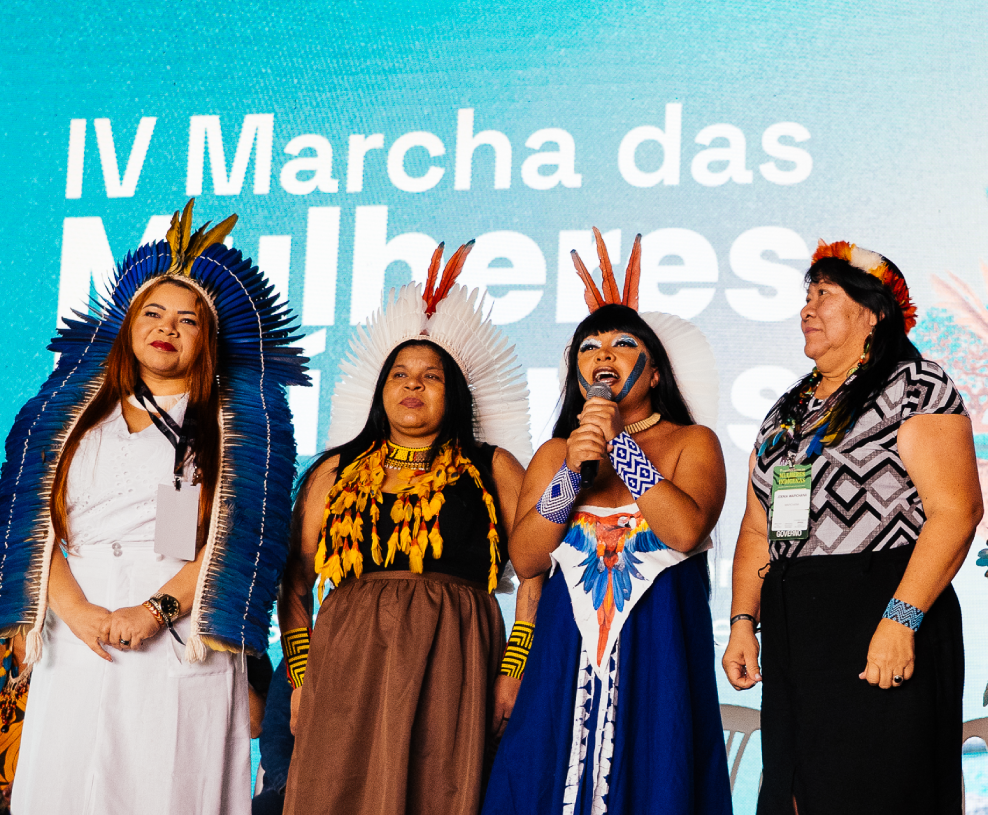
The spirit of learning, present in every exchange
In the Global Ancestral Resistance Tent — a new space at the March — leaders from Ecuador, Peru, Colombia, Bolivia, Panama, Honduras, Mexico, Suriname, Guyana, and other countries met with their sisters from Brazil to share learnings and forge alliances. The Carta de Brasília: vozes globais pela cura da terra is one of the outcomes of that space, capturing key demands looking toward COP30 and subsequent international arenas.
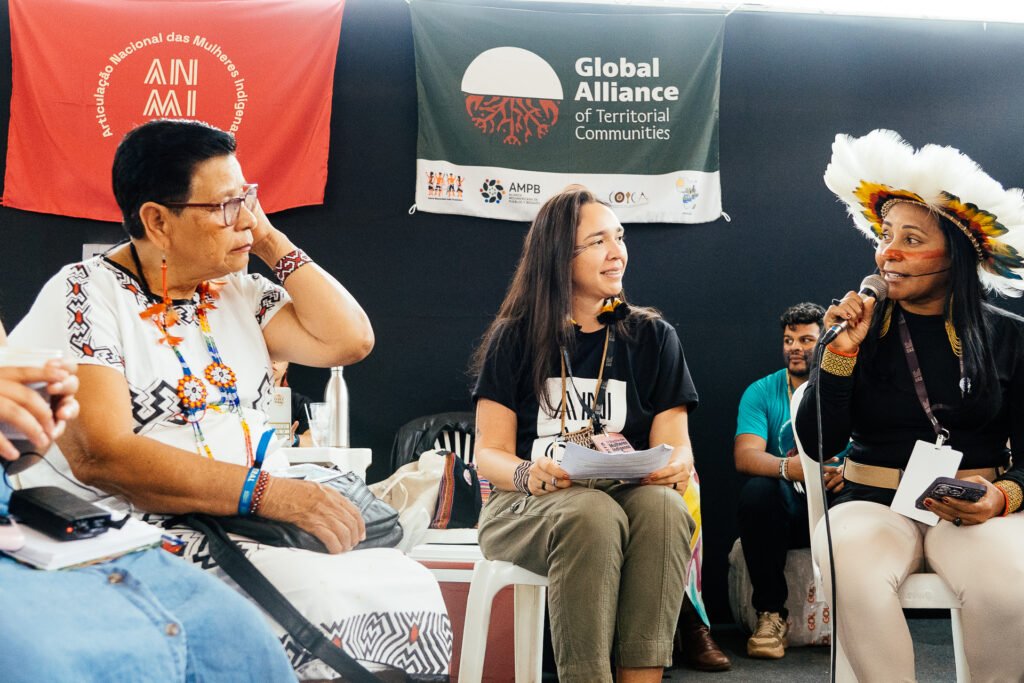
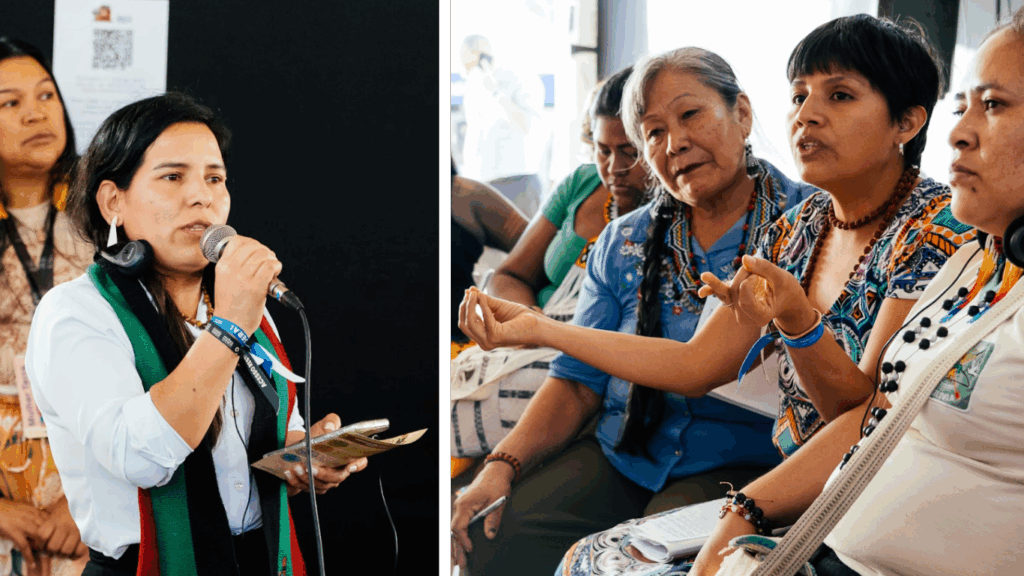
Another valuable moment was the day of exchange held at Brazil’s Ministry of Indigenous Peoples. “We consider this exchange very important, because sharing experiences also allows us to strengthen our struggle,” said Minister Sonia Guajajara at the opening of the meeting.
There, the delegates were able to dialogue with representatives from three leading organizations in the fight for the rights of Indigenous peoples and Indigenous women in the country: ANMIGA, COIAB, and UMIAB. The open dialogue brought them closer to the organizational experiences and advocacy strategies that the Brazilian Indigenous movement has been implementing, highlighting the role of Indigenous women in the construction of public policies, legislative frameworks, and institutional spaces.
Joziléia Kaingang, executive director of ANMIGA, emphasized that “global change is only achieved through local change” and that, to achieve it, Indigenous women need more autonomy and power “to build projects alongside our allies, but with our voice at the center.” The call for articulation resonated in the words of the delegates as well. Carmen Jojoa, from the National Organization of Indigenous Peoples of the Colombian Amazon (OPIAC), expressed the desire that “these political and organizational processes continue to be promoted, from our grassroots at the national and international level, until we achieve the objectives we all dream of.”
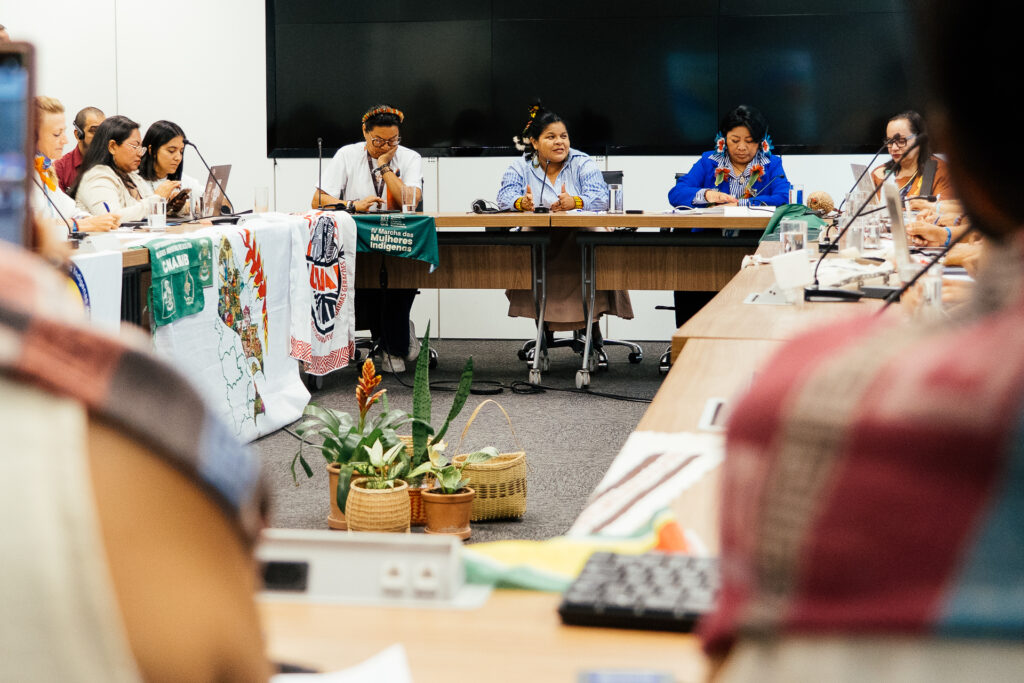
“I felt we were not alone, that our voices were heard loudly before States, governments, and big cities,” said Teresita Antazú, from the Interethnic Association for the Development of the Peruvian Jungle (AIDESEP), stressing how each one “brought her experiences, demands, and proposals to highlight the political participation of Indigenous women and the role we play in defending our territories.”
In a similar vein, Alma Marshall, of the Amerindian Peoples Association (APA) from Guyana, considered that as an Indigenous woman leader, often “we are neither seen nor respected,” and that the March was valuable insofar as it allowed them to recognize themselves as such. “We carry decades of struggle for our rights, and although the advances are insufficient, we will not stop defending our territories and our future,” she affirmed.
For Roxana Duris Bautista of CNAMIB, the experience leaves as a central learning the unity in the face of encroachments that Indigenous peoples in Bolivia endure. “I will take this example into our territories, to encourage our sisters, our leaders, and organizations to continue strengthening ourselves, to say with strength, ‘we too can.’”
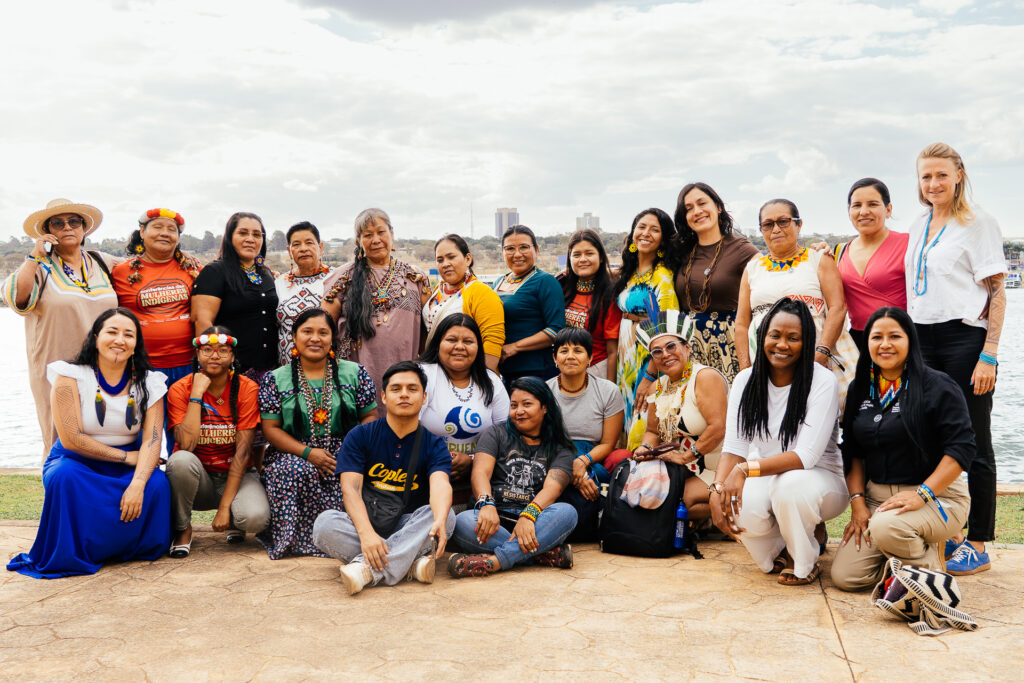
This participation highlights the value of these spaces for articulation and strengthening, and reaffirms the Learning Journeys as a long-term commitment to connect local experiences with regional and global agendas, and to consolidate networks that empower struggles.
The challenge is to continue nourishing these processes, so that collective experiences transcend into the territories, deepen the exchanges, and project the voices of Indigenous women in spaces of influence. As Cristiane Pankararu, cofounder of ANMIGA, reminded us, the goal is clear: “To guarantee the qualitative participation of Indigenous women in spaces of power, carrying our ancestral sciences and breaking structures that have historically excluded us.”
The IV March of Indigenous Women of Brazil was a profoundly meaningful experiential event for the articulation of indigenous women in Brazil and around the world on the road to COP30 and beyond. The learning and exchanges continue, and every step confirms that this is a collective, diverse, and profoundly transformative path.
Let us keep amplifying the voices of Indigenous women and contributing to strengthen their influence in decision-making spaces!